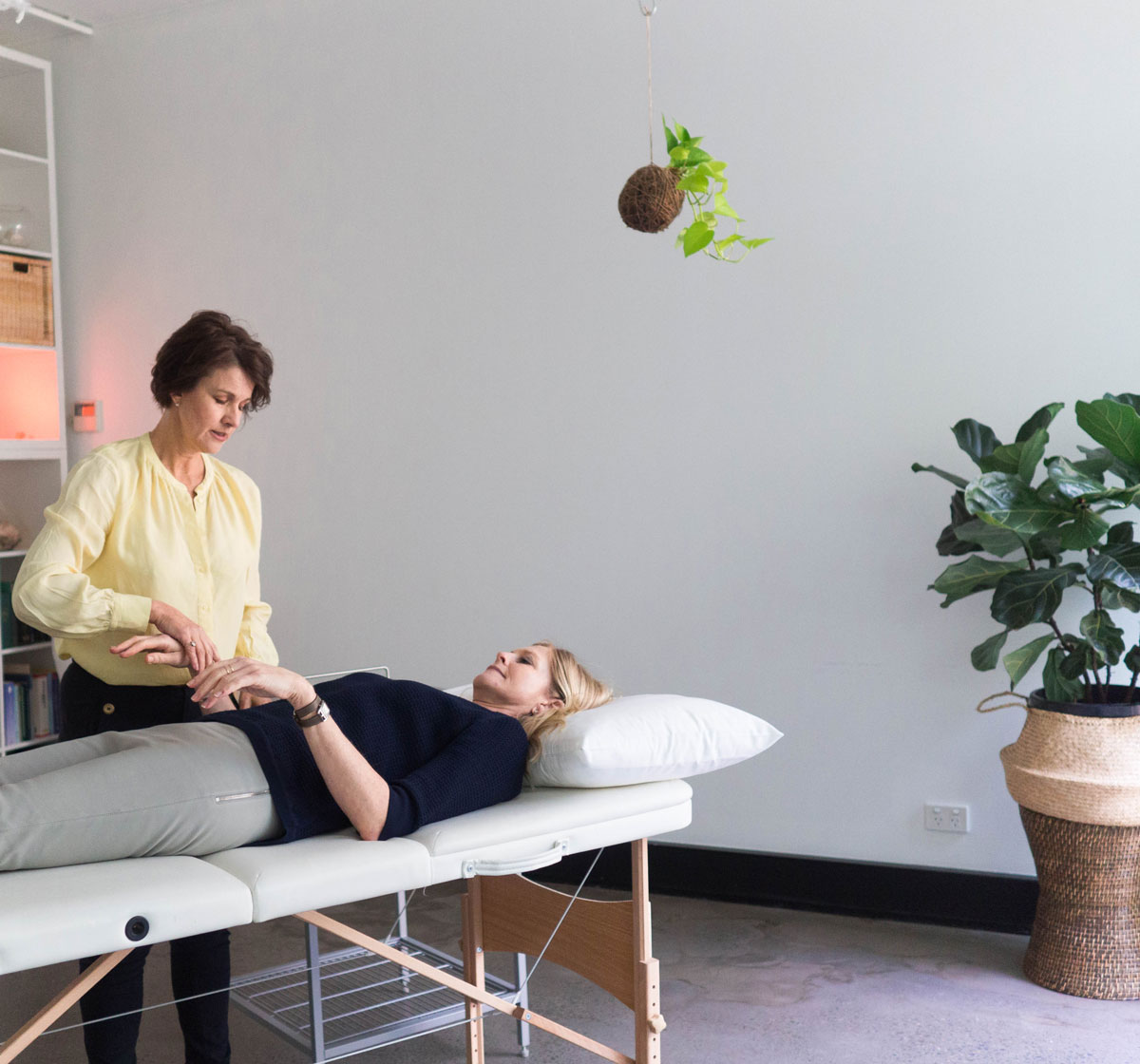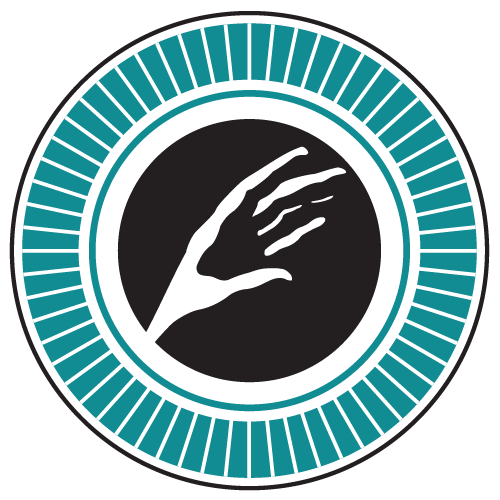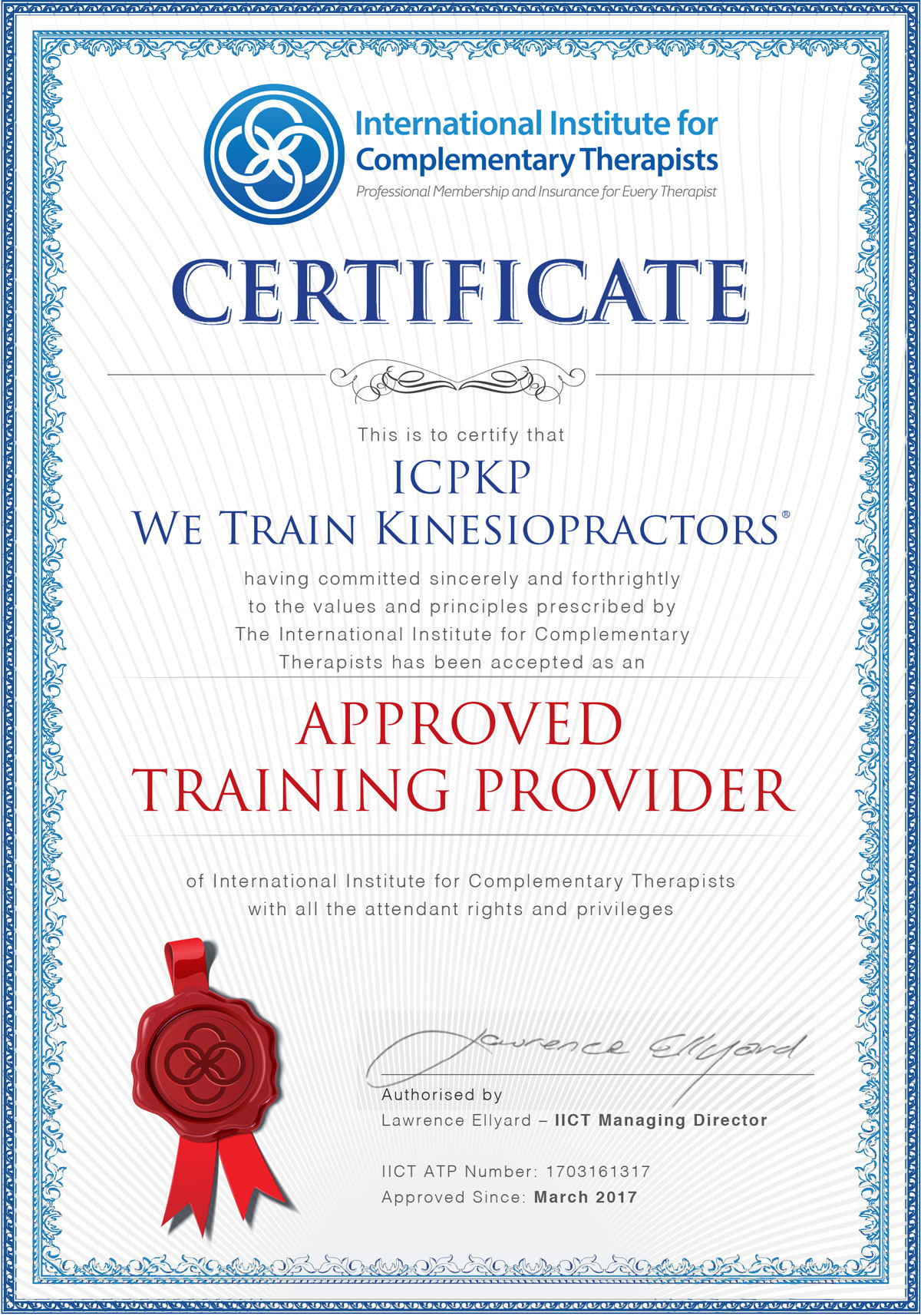Careers in PKP
A career in PKP™ as a Kinesiopractor® is inspirational, multifaceted and highly rewarding. You will have the opportunity to grow your practice even while studying so, when you graduate, you will already be on the road to success with a loyal client base and valuable experience running a practice.
Adding PKP™ techniques to your existing toolbox is a great option for other health and wellness professionals such as massage therapists, physiotherapists, chiropractors and osteopaths.

“Kinesiology (Kinesiopractic®) is an ‘art’ as well as a science. Like the ‘art of portrait painting’ the ‘art of kinesiology’ cannot be learned by reading a textbook, nor can it be learned by just watching a skilled kinesiologist perform a technique or do a kinesiology balancing session.“
Dr. Bruce Dewe MD, 1991
Is PKP™ the right career for you?
5 signs you’ll be great at it.
- You’re a people person. You enjoy time with people, feel energized by emotional exchanges, and are interested in people’s backgrounds: not just financial; parents, grandparents, aunts and uncles, and siblings all teach us things.
- You’re a good listener who focuses on the person who’s speaking. You do not interrupt or listen just to respond or to hear them out.
- You will walk beside people as they identify, define and resolve their own problems.
- You are an unselfish person whose actions show concern for the welfare of others.
- You may have struggled with anxiety or depression.
Eight useful traits for PKP™ students:
- Patience. PKP™ practitioners know that it can take more than 1 or 2 sessions to make a breakthrough.
- Empathy. Empathy is the ability to recognise and respond to what another person is feeling.
- Cross-Cultural Sensitivity, able to recognise and value cultures other than your own.
- Solid Ethical Core including kindness, respect, responsibility, reliability, dependability, self-discipline.
- Trustworthiness including honesty, faithfulness and truthfulness.
- Communication skills including active listening, friendliness, responsiveness.
- Open-mindedness including being approachable, impartial, tolerant, broad-minded, interested, perceptive.
- Being a Lifelong Learner including building your knowledge, open to new ideas, seeing new possibilities.
What does a typical Kinesiopractic® career like?
Earn as you learn.
The PKP™ Career pathway enables you to earn money as you study. During your first six months of study you will practice various techniques and processes with willing family and friends. As they begin to see the positive results in their lives they will begin to refer their own friends and you’ll soon have an eager group of ‘clients’ you are seeing for free.
On completion of the first six months, you will attain the Certificate in High Level Wellness and Vitality Therapy which enables you to formally register as a practitioner in some countries, for example:
- High Level Wellness & Vitality Therapist (UK)
- BioEpigenetic Wellness Consultant™ (Canada, Bahrain)
Dr Dewe tells the story of a PKP student (below) who was also a farmer in rural Australia and traveled long distances to attend classes each weekend. The student was able to generate an income by practicing on people at the hotel where he stayed overnight on his way home!
This is a great example of the important life rule: the more you give, the more you’ll get.
Teaching self-help workshops.
We also publish a range of one-day, self-help workshops for lay people, under the K-Power® brand. You will cover the material in these workshops very early in your first year of study and be able to qualify as a K-Power® Instructor teaching:
- Stress Release made Easy
- Tibetan Energy & Vitality
- Your DNA Is Not Your Destiny (Epigenetic Healing Cycles)
On completion of the first year you will attain the PKP™ Practitioner Certification (Kinesiopractic® Level 1) which will allow you to register with your local peak body or with the Kinesiology Practitioners Accreditation Board (KPAB) in New Zealand. You can then obtain the relevant insurance through IICT, and begin charging clients.
Running K-Power® workshops will enable you to generate income while you teach others to help themselves and build a strong network and client base for the future. As you complete further study more K-Power® workshops can be added to your repertoire.

PKP™ co-founder Dr Bruce Dewe says:
“I met a PKP student (we’ll call him Cocky) who traveled about 6 hours from his farm to the city to get to classes each weekend. After class Cocky drove home but stopped off at a pub part way so he was not driving in the dark after two days in a classroom.
“People asked him where he’d been and what & why he was doing it. Cocky showed them and ended up doing the home activities from his Student Activities Journal on a table in the bar room. He had fun, and people noticed positive changes.
“Next month Cocky did the same thing and was flooded with requests from folk wanting to be a volunteer. The following month he began to charge people who wanted ‘old’ stuff he learned last month. But, as before, what Cocky was doing for this month’s home practice was offered free.
“By the time he graduated from year one, Cocky was spending two or three days a month at his stopover and told me that he was earning more from practicing PKP™ than from his farm!”
Frequently Asked Questions about careers in PKP™
How do Kinesiopractors® build a client base?
We have observed that PKP™ students who faithfully (and freely) do their homework and practice their skills on family, friends and acquaintances build up a fan base.
People tell people, “You need to go see Mary, she helped me sort out what was causing my ‘upset’ and it was worth every cent I spent.”
In other words, word-of-mouth and personal referrals are key.
Where do Kinesiopractors® work?
There are no specific rules about where you must work. Some Kinesiopractors® work from home, providing a quiet and safe environment for clients and keeping overheads low. Some work from a private or shared clinic space; others are often traveling, providing their services to various corporate clients on site.
How much do Kinesiopractors® work?
Again there are no specific rules. Some graduates do evening clinics and continue at their normal job as they build their client base. Some then progress to doing a Saturday or Sunday clinic in another therapist’s rooms, then two or three evenings a week, up to doing 1 day a week at home and less time in their old job.
One thing we advise: Save most of what you earn (after you have used some to pay for your classes in year 2 onwards). Do not give up your old job until you have done at least two years of classes and saved at least 4 months of your old salary.
Do all Kinesiopractors® run workshops as well as see clients?
The wise ones do. Advertising the ‘Client and Community’ K-Power® workshops locally works. Dr Dewe says, “We taught these from our lounge, then lounge + dining room, then lounge, dining and sun rooms as demand grew.”
Remember too that you may only get two people for your first workshop. That’s not a bad thing as it’s better to develop your presentation skills with a small group before moving to larger groups. Offer them a free repeat if they bring a friend. Don’t expect these people to do the Home Study section of the book but rejoice when they do and give them a K-Power® Certificate.
It is so much fun and so rewarding to run workshops. Some graduates like it so much they train to teach the PKP™ career program. The big thing to remember is that both Buddha and Christ taught with stories. Have real, delightful stories to tell about what your are teaching. Stories are what the people will remember – and tell their friends who will soon become clients.
Another reason for teaching as well as seeing clients is to teach your clients self care so that when situations arise they can often resolve them within their own family.
Ready to learn more?

More stories from PKP™ founders Dr Bruce & Joan Dewe:
“When we moved to a new city our first client was recommended by one from the past. The new client recommended two others who recommended more.
Once we had about a dozen clients we required that all new ones to come to our Tuesday evening workshop on Stress Release made Easy before their second appointment. It was $50 for the evening and the book. If Polly brought Bob, her partner, with her they shared a book and paid only $40 (and we had a new potential client or ‘advertising agent’. One lady brought her husband and 14 year old twins. We charged $30 and gave them two books. Yes, we got 4 clients and great advertising.”
“We remember two mothers who both attended the same Stress Release made Easy workshop.
One afternoon not long after, one rang for an urgent appointment because her young son had been attacked by older boys on his way home from school. As we used the techniques that we had taught in the workshop he rapidly de-stressed and remembered to tell us his mate was there and was bullied as well.
We phoned the mother of the other boy and asked how he was. She was surprised and said he was happily working on his boat. She said he was a mess when he arrived home but responded rapidly when she used the techniques she had learned in the workshop.”
“A man came to our front door for a 5pm appointment. As I opened the door and welcomed him he said, “before we go any further, Joe (the friend who referred him) told me I had to tell you up front, “the thing I don’t want you to know is…”. We had a perfect opening. This man, who had done a horrible thing, was able to get over his feelings of, ‘I can never forgive myself for that’ and make peace with his aged parent who lived several hours away. I heard about the reunion, I cried too. His mum lived her last few months with the love and support of a very different son from the one who had stormed out of her house five years earlier.”
ICPKP Faculty Member Terese Mudgway (Nidana Collective) working with a client.

